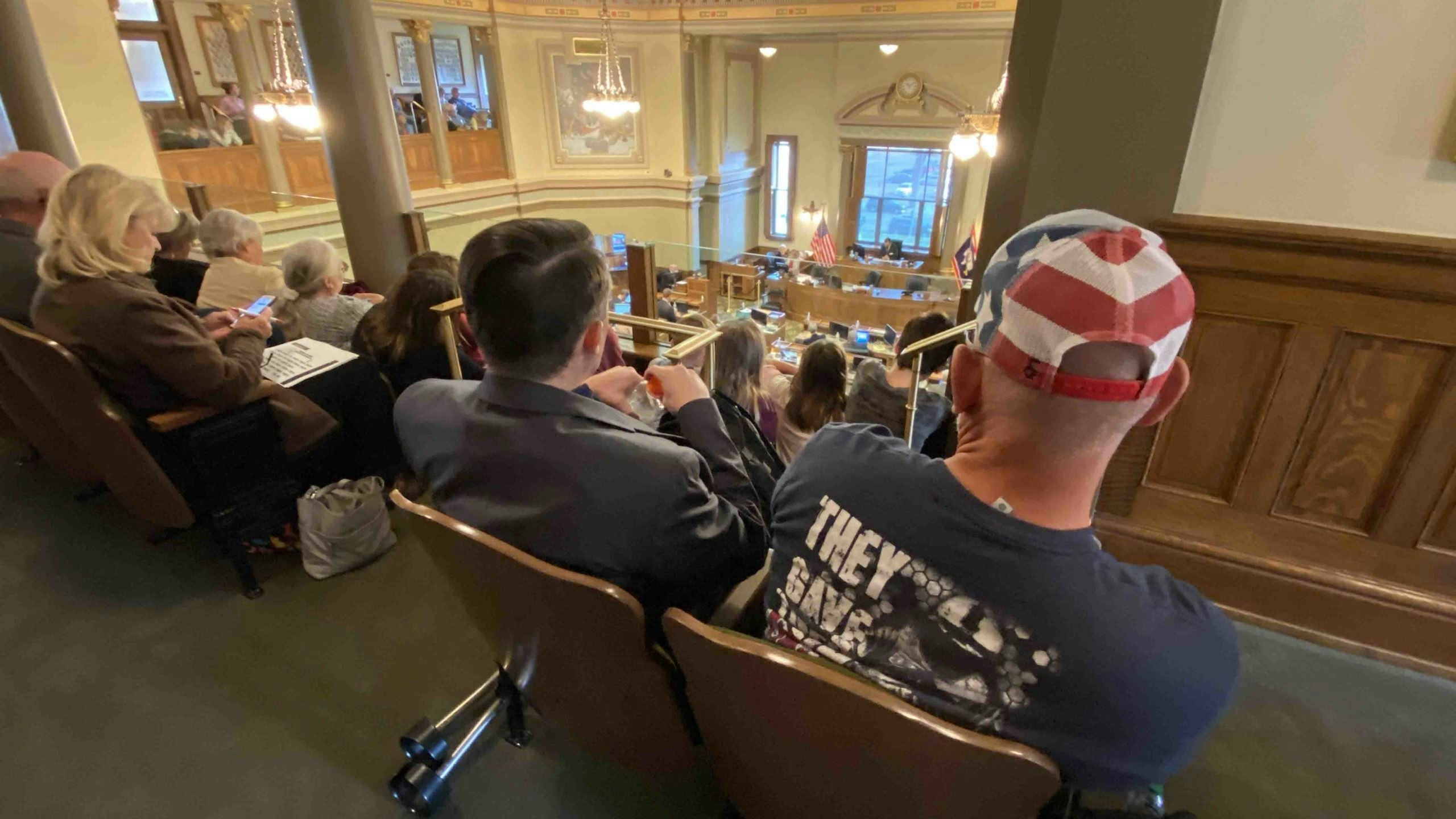Wyoming representatives on Wednesday spent most of their day trying to find a balance between the health care freedoms of the state’s residents and the rights of its businesses as they worked to chart Wyoming’s response to a proposed coronavirus vaccine mandate.
Members of the state House approved, in its first floor review, HB1001, which would prohibit employers from requiring coronavirus vaccination as a condition of employment except under certain circumstances.
Supporters of the bill successfully argued the state needed the legislation as a starting point to determine how to reduce the impact of the vaccine mandate proposed by the administration of President Joe Biden.
“I look at this bill and there’s things about it I don’t like,” said Rep. Mark Jennings, R-Sheridan. “But we need a vehicle to tell our citizens and our business owners we mean business. We owe it to those citizens out there to try and get this right.”
Debate on the bill came on the second day of the special session called by the Legislature itself to examine ways to reduce the impact of the proposed mandate, which has not yet taken effect. Under the proposal, federal employees, health care workers and employees and companies with more than 100 workers would have to get the coronavirus vaccine or be tested weekly for the illness.
Opponents of HB1001 said they were concerned employers could become stuck between the conflicting demands of state and federal law if they chose to require their employees to get vaccinated.
Others noted that many companies in Wyoming have contracts with federal agencies, which would require employees to be vaccinated.
“This bill will be a burden to our entrepreneurs and it will say we are willing to prioritize the personal freedoms of a hesitant minority over our entrepreneurs who are also our constitients,” said Rep. Trey Sherwood, D-Laramie. “We are pitting staff against job creator in this bill and we are sending a message that says Wyoming is not business friendly.”
But supporters said the bill provides protections for business owners, especially with amendments that removed sections such as one requiring employers to pay a severance package to any employee who quits or is fired because of a vaccine mandate.
Others argued the state needs to stand up to federal overreach.
Rep. Bill Fortner, R-Gillette, said in order to get needed back surgery recently, he was told he would have to get the coronavirus vaccine, even though he is self-employed.
“It’s already happened to a one-man crew,” he said. “We don’t have to wait for the president to make a mandate. I think it’s already been made.”
As approved in its first reading, the bill would allow employers to explain to the Department of Workforce Services why protecting the safety of their businesses might require employees to get the vaccination. It would also require employers who do require vaccinations to find a job for their workers who will not be vaccinated in an area where they would not pose a threat to the business.
If the federal mandate is approved and upheld in federal court challenges, the prohibition on employers requiring vaccinations would end.
Also approved for a second reading, scheduled for Thursday, was HB1002, a bill that would prohibit government entities from enforcing any coronavirus-related mandates.
Sponsor Albert Sommers, R-Pinedale, the House majority floor leader, said the bill was designed as a “pushback” against the vaccination mandates.





